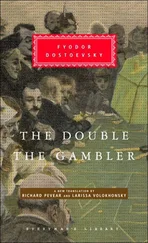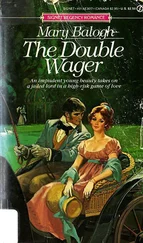“Two weeks ago.”
“I wish I’d known. You know? I woulda gone to the service. There was a service, right?”
“A small one.”
“I bet Jordie woulda gone, too. Really, I’m sorry. Still, I always say you should be a man’s friend when he’s living. Not after he’s passed.” He made a clicking sound with his tongue against his dentures, then sighed. “I’d join you two beautiful girls-well, I’d ask to join you, I wouldn’t be so presumptuous as to suppose you wanted more company-but I was just leaving. I teach a journalism class at the community college. I know, I know, I’m too old. I shoulda retired. But I wrote for newspapers when I was younger and I love a good story. Finding one, telling one. Teaching others how to tell ’em. Anyway, I still have lots to do before class tomorrow.”
“And I should go help Beverly,” Serena said, rising. “That’s a pretty big family that just pulled into the parking lot. I’ll be back in a couple of minutes, Laurel, okay?”
“I’m not driving you away, am I?” Shem asked.
“No, not at all. I’ll be back.”
Shem bent over the table to stare at the top picture in the portfolio case, the one of the Mustang beneath the Buchanan portico. He studied the photograph and then exhaled loudly.
“That Bobbie sure grew up with one big silver spoon in his mouth,” he said.
Laurel was taken aback. Had this Shem Wolfe really just implied that he knew this was the home in which Bobbie Crocker had grown up?
“You know this was Bobbie’s parents’ house?” she asked him, wishing she could rein in her enthusiasm and make her voice sound more casual.
“Well, it was his mom’s house. The old Buchanan place, right? But Bobbie’s old man-his real dad, anyway-lived over the water in West Egg.”
“Excuse me?”
“Oh, I guess I’m slicing hairs, you know? Very fine hairs. But maybe not. Tom Buchanan raised Bobbie for a while and put a roof over his head. Bobbie lived with the man for what, sixteen, seventeen years? Something like that. But his real allegiance, once he figured it out, was always to his real dad. Or, I guess, to the ghost of his real dad. Because, of course, they never met. But Bobbie told me twice-really, two times-that he’d never stopped wishing he’d got to meet that Jay Gatsby.”
SHEM WOLFE WAS indeed a remarkable storyteller, and that afternoon he told Laurel what he knew of Bobbie Crocker’s youth. Apparently, Reese had been aware all along of who the periodically homeless man’s father had been, and in the year that Bobbie had lived with Reese in Vermont, Bobbie had grown sufficiently comfortable with Reese’s friend, Shem, to share with him his life story, too. The three of them-the two old photographers and the one old reporter-reminisced often.
“Reese always cut Bobbie a little extra slack,” Shem said. After Serena had left, he had taken her seat across from Laurel, deciding that his class preparation could wait another half hour.
“He was an addled man, and I guess he had been an addled boy,” he told her. “Sometimes even voices-in-his-head-addled. And always a little unfocused, a little edgy.” Shem had learned that Bobbie hadn’t been much of a student and he’d never been much of an athlete. As a result, he had never had much of a relationship with Tom Buchanan, the man he assumed was his father. The family rarely mentioned the baronial estate across the cove, and no one ever dared bring up the car accident. Adult neighbors and schoolteachers never discussed it around Bobbie when he was a child. The other boys, however, occasionally would flaunt the rumors they’d heard, for no other reason than the reality that boys can be cruel. Usually, the tales bordered on the fantastic and had only the most tenuous connection to the all-too-prosaic truth. At least one first-grader liked to insist that Bobbie had Martian blood coursing inside him. A third-grade boy announced to the class that the man Bobbie still believed was his father-Tom Buchanan, of all people-had made his fortune with a string of speakeasies. In the fourth grade, there were stories swirling about him that his mother had killed a man-a tale that Bobbie would later realize had at least a semblance of truth, since his own father might not have died if his mother had told Tom Buchanan who had been driving that tragic afternoon. And, though it was an accident, his mother really had killed Myrtle Wilson.
It first dawned on Bobbie in the sixth grade that he had been conceived in the summer of 1922: the summer of his mother’s alleged dalliance with that dead criminal who had once lived across the cove. He wrote this off as coincidence on a conscious level, and for a time even viewed it as corroboration that his mother could not possibly have been involved with Jay Gatsby. Back then, he presumed, his parents had still loved each other.
It was, perhaps not surprisingly, a photograph that had set in motion the final fight with Tom that would cause him to leave home. When he was sixteen he found a greeting-card-sized image of a young soldier in one of his mother’s ragged old books. The lieutenant was a little older than Bobbie at the time, but the teen couldn’t help but notice an uncanny resemblance between himself and the officer. He could see it in the hard, solemn cast of the man’s face, the high cheekbones, the firm jaw: the restlessness and ambition in the fellow’s dark eyes. There was a note on the back of the photograph in a handwriting Bobbie didn’t recognize:
For my golden girl,
Love, Jay
Camp Taylor , 1917
For years now, Bobbie had known the specific allegations about his mother and Jay Gatsby. Sometimes he had given the tawdry claims more credence than at others. But he had still been too young to accept with certainty the notion that his mother could be so deceitful and, ironically, that his father could be so magnanimous-at least when it came to raising Jay Gatsby’s bastard son. He just couldn’t quite believe the lurid stories could be true, though he had felt his relationship with his mother begin to change. He had found himself looking upon her differently. Less the victim in a turbulent marriage. Less the frivolous Louisville belle, still years short of serious middle-age. Less unreservedly innocent. But he had nonetheless remained confident that his father-or, to be precise, the man who was raising him-was far too arrogant and cruel to raise his wife’s lover’s baby. It wasn’t possible.
But this picture he had discovered in the old book suggested that it was. No, this picture proved to him that it was. He was an aspiring photographer, he knew that pictures didn’t lie. At least in those days they didn’t. And Tom Buchanan had to know. If he hadn’t known for sure in 1923, he had to have figured it out by now. The resemblance was unambiguous. Why then did this conceited, brutish man abide having him under his roof, within a stone’s throw of his precious polo ponies and his half acre of roses? And the answer, Bobbie realized, was clear. Pride. Precisely because Tom Buchanan was so arrogant, he was never going to acknowledge aloud that his wife had slept with Jay Gatsby-and thus the rest of the story, including the awful ways George and Myrtle Wilson had died, might be true, too. Tom might allude to the affair, he might allow the subterranean truth a glimmer of sun in a catty remark when he and Daisy were fighting-odd comments Bobbie had witnessed or overheard suddenly made sense-but he would never give public credence to the notion that he had been cuckolded by the low-rent criminal across the way.
In hindsight, Bobbie told Shem, he wished that he had waited until his mother had returned from her card game before demanding to hear what had really occurred in 1922. It wasn’t as if he didn’t already know. But he was filled with such adolescent rage that when he saw Tom in the kitchen-the very room in which this man and his mother had reconciled mere hours after Myrtle Wilson had died on the street near the ash heaps-he exploded. Here was the man who, in essence, had had his father killed. He took a swing at Tom, but the punch was well telegraphed and Tom decked the boy. Asked him if he wanted to climb up off the tile and take another. His sister made an attempt to calm both men down, but her efforts were doomed to fail because Bobbie knew where her loyalties lay. He understood now why his father always treated her so differently from him. Besides, she had always tried to defend her parents, and their behavior was indefensible. He wanted as little to do with her as he did with Daisy and Tom.
Читать дальше












